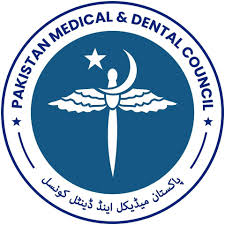Assessment of health status of traffic constables: An occupationally exposed group in Pakistan
Health of traffic constables
DOI:
https://doi.org/10.37018/VEIG5252Keywords:
Traffic constables, occupational health hazards, mental health, social healthAbstract
Background: Traffic constables are exposed to various occupational health hazards worldwide. This study is planned to assess occupational health hazards in traffic constables in Punjab, Pakistan.
Subjects and Methods: A descriptive cross-sectional study was conducted in different cities of Punjab including Lahore, Gujranwala, Bahawalpur, Bahawalnagar, Sialkot and Islamabad from March till August 2018. A sample of 384 traffic personals were selected by using non-probability convenient sampling technique. Retired traffic constables and those with work experience less than a year were excluded. A pretested questionnaire was used to conduct the interviews after taking informed consent. Data was collected and analyzed using SPSS version 22 and presented in frequency tables and charts.
Results: Maximum number of constables belonged to 31-40 years of age group. Among them 98.7% were male, 25% were having education level above graduation. Results of physical health hazards showed that 53% of warden were smoker, 16.14% were known diabetics and 19.53% were found to be hypertensive. Other physical ailments included respiratory problems (23.4%), hearing impairment or loss (15.88%) and various eye ailments (13.28%). Additionally, 9.1% of participants had evidence of lead poisoning, 33.84% complaints of tightness in muscles and 13.72% of headache, whereas 35.7% had met an accident in the last year. Prevalence of stress and anxiety were 30% and 33.33%. Regarding social health issues 36.7% reported that they were unable to give family time and 42.48% felt lack of independence due to their occupation. Job satisfaction was reported by 50%.
Conclusion: The traffic constables in Punjab suffer from a large number of physical, mental and social health issues. Their perception about their occupational health hazards is low and needs improvement through imparting health education.
Downloads
Published
How to Cite
Issue
Section
License
The Journal of Fatima Jinnah Medical University follows the Attribution Creative Commons-Non commercial (CC BY-NC) license which allows the users to copy and redistribute the material in any medium or format, remix, transform and build upon the material. The users must give credit to the source and indicate, provide a link to the license, and indicate if changes were made. However, the CC By-NC license restricts the use of material for commercial purposes. For further details about the license please check the Creative Commons website. The editorial board of JFJMU strives hard for the authenticity and accuracy of the material published in the journal. However, findings and statements are views of the authors and do not necessarily represent views of the Editorial Board.

















